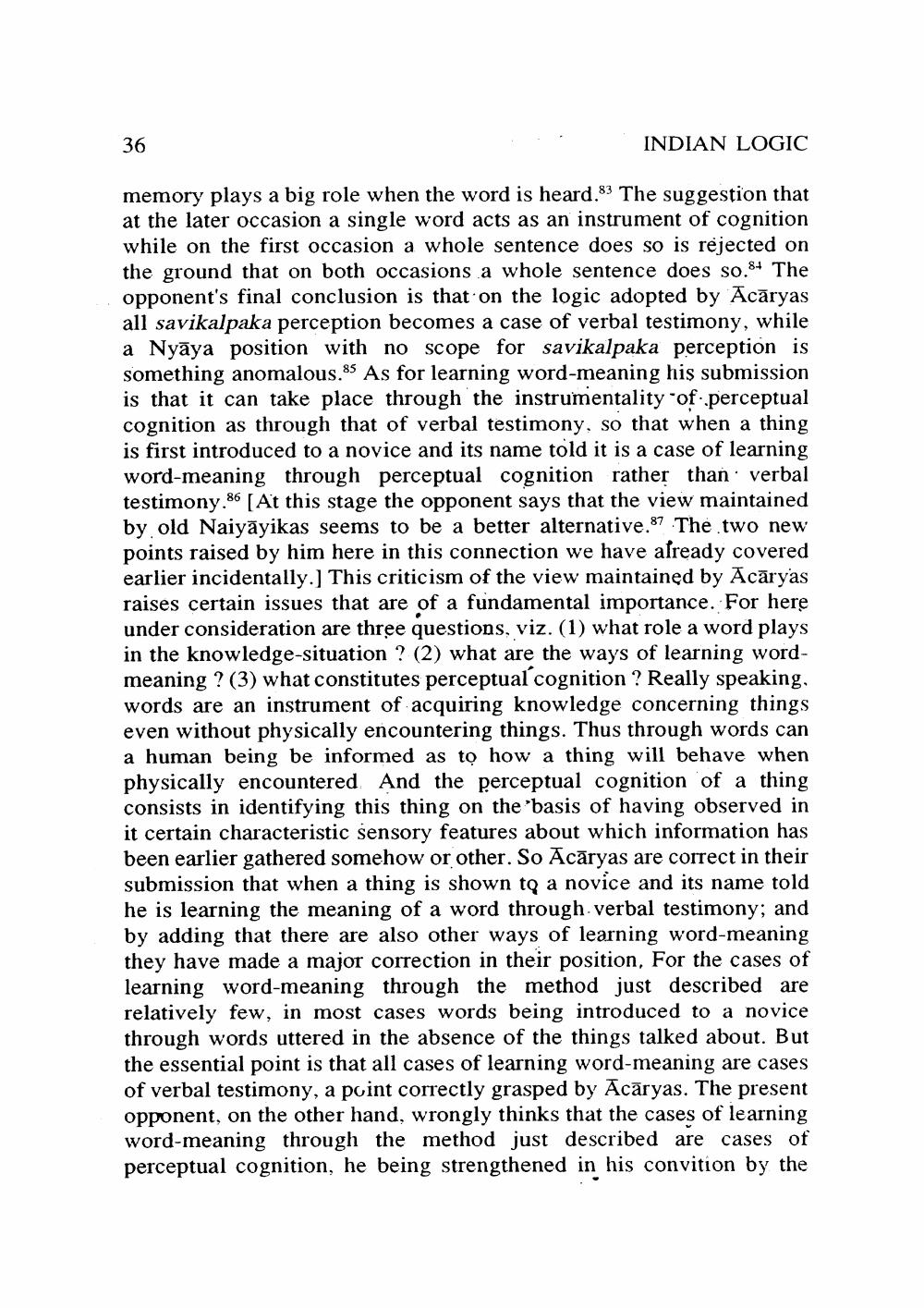________________
36
INDIAN LOGIC
memory plays a big role when the word is heard.83 The suggestion that at the later occasion a single word acts as an instrument of cognition while on the first occasion a whole sentence does so is rejected on the ground that on both occasions a whole sentence does so.S+ The opponent's final conclusion is that on the logic adopted by Acāryas all savikalpaka perception becomes a case of verbal testimony, while a Nyāya position with no scope for savikalpaka perception is something anomalous.85 As for learning word-meaning his submission is that it can take place through the instrumentality of perceptual cognition as through that of verbal testimony, so that when a thing is first introduced to a novice and its name told it is a case of learning word-meaning through perceptual cognition rather than verbal testimony. 86 (At this stage the opponent says that the view maintained by old Naiyāyikas seems to be a better alternative.87 The two new points raised by him here in this connection we have already covered earlier incidentally.) This criticism of the view maintained by Acāryas raises certain issues that are of a fundamental importance. For here under consideration are three questions, viz. (1) what role a word plays in the knowledge-situation ? (2) what are the ways of learning wordmeaning ? (3) what constitutes perceptual cognition ? Really speaking, words are an instrument of acquiring knowledge concerning things even without physically encountering things. Thus through words can a human being be informed as to how a thing will behave when physically encountered And the perceptual cognition of a thing consists in identifying this thing on the basis of having observed in it certain characteristic sensory features about which information has been earlier gathered somehow or other. So Ācāryas are correct in their submission that when a thing is shown to a novice and its name told he is learning the meaning of a word through verbal testimony; and by adding that there are also other ways of learning word-meaning they have made a major correction in their position. For the cases of learning word-meaning through the method just described are relatively few, in most cases words being introduced to a novice through words uttered in the absence of the things talked about. But the essential point is that all cases of learning word-meaning are cases of verbal testimony, a point correctly grasped by Acāryas. The present opponent, on the other hand, wrongly thinks that the cases of learning word-meaning through the method just described are cases of perceptual cognition, he being strengthened in his convition by the




